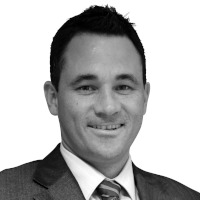
We have been hearing about digital disruption of financial services for some time, and in some cases experiencing it first hand with the first wave of Australian robo-advisers now in the market.
But it’s not until you are on the ground in Silicon Valley, the world’s hotbed of innovation, that you get a sense of just how major the disruption will be.
Over the last week, Implemented Portfolios led a team of Australian industry thought leaders and some of our closest stakeholders to the San Francisco Bay Area to get a better picture of the challenges ahead and better prepare for the onslaught, helping us and our clients to build businesses that will not only survive, but thrive in the fintech era.
Meeting with some of the world’s top experts on this topic – entrepreneurs, venture capitalists and private equity investors, CTOs, CIOs, consultants, wealth managers and others – it became clear that the Valley has set its sights on financial services. In fact, Rich Arnold, a man who truly understands both the Australian financial services industry and the funding and innovation circles of Silicon Valley (having emigrated there from Melbourne in the early ‘60s!) estimates there are as many as 800 tech firms in the Bay Area right now solely focused on the financial sector, including many who have plans to enter the Aussie market.
The good news is that for those professional service providers – particularly financial advisers – who acknowledge the threat and start taking steps to mitigate it, the future seems very bright indeed. Those who do not will be eaten alive by the barbarians at the gate. As Rich puts it, “software is eating the world”.
Just as we have seen Uber fundamentally disrupt the taxi industry and Airbnb do the same to hotels, software-based applications that are focused, capitalised and (most importantly) data-driven are coming for personal investment. Anything that can be done by software will be, and that includes investment management. So for financial advisers the first step will be homing in on that with which the robot cannot compete: the trust element that only humanity can provide.
What became clear during our sessions last week is that the investment function for advisers has changed for good. Providing advice is no longer about managing a product, it needs to be about managing a system – a system that engages our clients in a way we previously could never have dreamed, using predictive analytics and data tools.
The old paradigm of advisers choosing a product first, then a platform, then implementing one by one is dead. This old school approach can never provide the scalability an advice practice needs or the consistency consumers are demanding. Instead, advisers need to shift focus to mass customisation – this is the key to not only defending against digital disruption but turning the trend to an adviser’s advantage. Using technology, not pen and paper, advisers can achieve the scale they so sorely need while still providing a valued and personalised service to clients. In the future, it is not only front- and back-end processes that will be automated. Even asset allocation decisions can be executed without the need of a human adviser, with portfolios managed that remember client preferences and act accordingly across an entire client base using robots, not humans.
But in order for this to happen, we don’t just need access to innovative technology solutions (though this is critical). We also need to see some cultural changes within advice practices, with experimentation and potential failure embraced and an understanding that the client relations portion of the advice proposition is the one thing that cannot be automated.
Of course, if you don’t control the decisions in your business all of this is irrelevant, which is why independence is also key. It is no coincidence that those advice firms in the US that are best utilising technology are those that split from the banks and 'wire-houses' long ago.
The ultimate challenge posed by the last week is “how can you manage 1,000 clients, not 100, using technology, not people?”
Advisers that are thinking this way are already ahead. Those more interested in short-term goals or hamstrung by embedded conflicts and licensees should get ready to be eaten and become the next taxi drivers.
Santi Burridge is the founder and chief executive of corporate development at Implemented Portfolios
Never miss the stories that impact the industry.